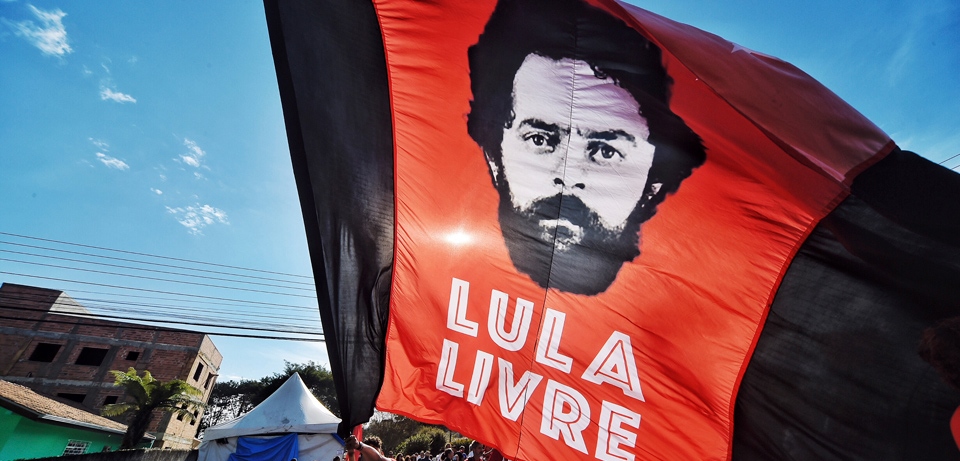Former Brazilian President Acquitted
July 13, 2018 | Expert Insights

Former Brazilian president Lula da Silva has been acquitted of one set of charges in the Operation Car Wash investigation, the largest corruption scandal in Brazil’s history. He is still being investigated for other corruption charges, and will remain in prison for the time being.
Background
Brazil is one of the world’s largest democracies. From 2000 to 2012, the country’s average annual GDP grew at a rate of over 5%. In 2012, the economy surpassed that of the United Kingdom, temporarily making it sixth largest economy in the world. In 2017, it was reported that it was in the midst of its worst ever recession. The growth rate is now 8% lesser than it was in December 2014. However, it still remains one of the most influential countries in the region.
Former President Luiz Inacio da Silva has been lauded as one of the most popular presidents in the history of Brazil. It was during his tenure that a number of economic reforms were introduced and the country had a period of sustained growth. However, his critics regarded him as a polarising figure and labelled him as opportunistic and corrupt.
Operation Car Wash is an ongoing criminal investigation being carried out by the Federal Police of Brazil. Initially a money laundering investigation, it has expanded to cover allegations of corruption at the state-controlled oil company Petrobras, where executives allegedly accepted bribes in return for awarding contracts to construction firms at inflated prices. Investigations have revealed widespread corruption involving a number of prominent politicians and presidents, including Dilma Rousseff, Lula Da Silva and incumbent President Michel Temer’s Cabinet.
In July 2017, Lula was sentenced to 12 years of imprisonment on charges of money laundering and corruption after investigations in Operation Car Wash. Lula was found guilty of having accepted bribes worth $1.2 million from an engineering firm OAS SA. He is also said to have helped the firm secure lucrative contracts with the state oil company.
Analysis
Luiz Inacio Lula da Silva, who served as Brazil’s President from 2003 to 2010, was found not guilty of obstruction of justice Thursday by Federal Judge Ricardo Leite of the 10th Federal Court of Brasilia. The initial indictment accused Lula and others of trying to buy the silence of a former Petrobras executive Nestor Cervero who was implicated in the scandal. Prosecutors had asked the judge to acquit him after admitting that they had not found evidence of his involvement to interfere with a massive corruption investigation involving state-run oil company Petrobras. Leite stated that “There are innumerable possibilities and circumstances as to what really happened”, citing a lack of credible witness accounts. Da Silva’s attorneys hailed the decision and said that the judge’s reasoning in the current ruling can also be applied to the case in which da Silva was convicted last year.
Despite being absolved of this instance, Lula has been in prison since April 7. He was convicted of trading favors with a construction company involved in the corruption scandal in exchange for the promise of a beachfront apartment. His lawyer Cristiano Zanin Martins had stated that Judge Sergio Moro had given too much credence to the testimony of the imprisoned former senator Delcidio de Amaral, who had agreed to testify against other politicians in exchange for leniency. “It is hoped that justice also prevails in the triplex case to reinstate Lula’s full liberty,” he said in a statement.
The acquittal is the first he has received in 7 of the pending Operation Car Wash cases against him. The Federal Prosecutor’s Office had asked for the acquittal of the former President and 6 other defendants, including de Amaral, the senator's former chief of staff Diogo Ferreira, and banker Andre Esteves.
Lula has denied all wrongdoings, and he remains Brazil's most popular politician. His Workers Party (PT) has proclaimed him its candidate for the October presidential election, which will depend on Brazil’s electoral courts. The electoral law forbids politicians from running for office for eight years after being found guilty of a crime. His previous terms in office were marked by a slew of social programs, lifting millions of Brazilians out of poverty and removing the country from the United Nations World Hunger Map.
Assessment
Our assessment is that da Silva’s acquittal of corruption charges might erode the trust in the legal system among Brazilians. We believe that if Brazil does not resolve the legal drama, it may be incapable of curbing rampant corruption within the country. We feel that Lula’s legacy has been tarnished.








Comments